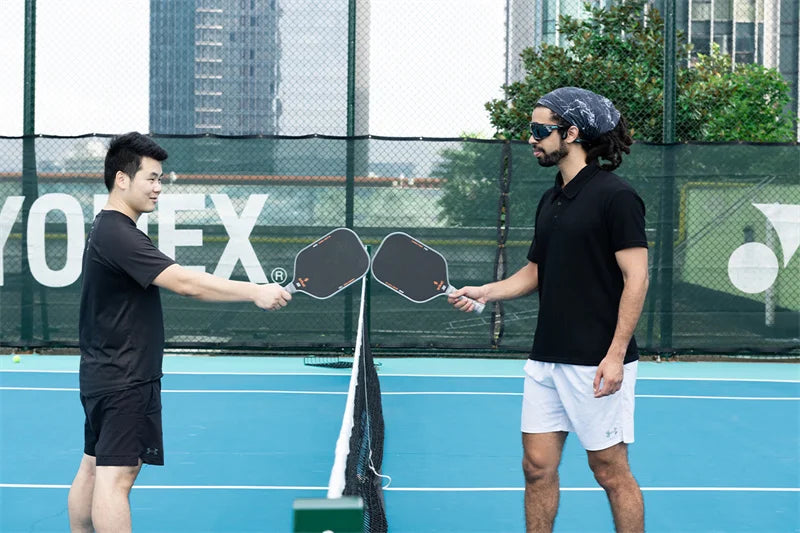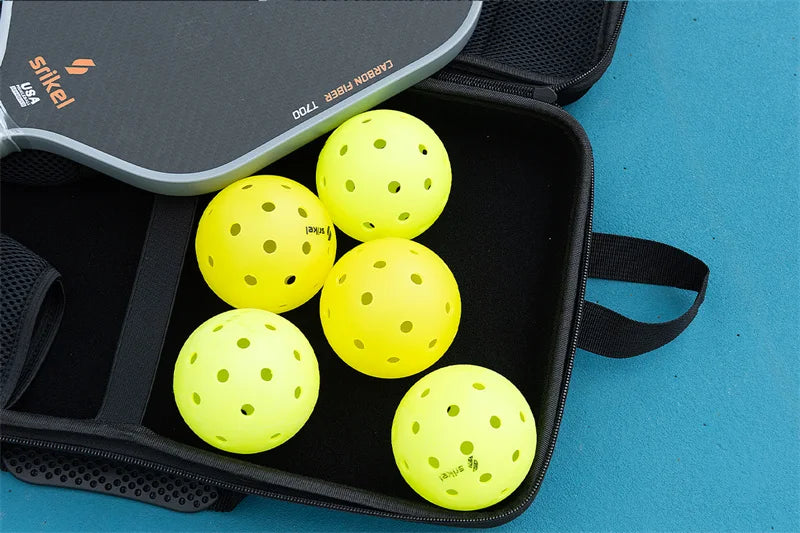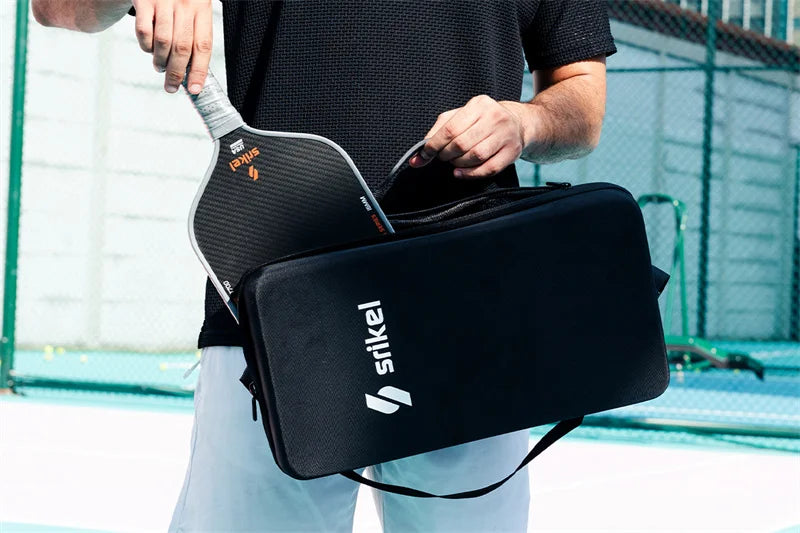Pickleball has quickly gained popularity as a fun, social sport that brings people of all skill levels together. While the sport itself is easy to learn, mastering pickleball etiquette is just as important as perfecting your serve or learning the rules. Good etiquette helps create a positive environment for everyone on the court, ensuring that games are enjoyable, fair, and respectful.
In this article, we’ll dive into the essential aspects of pickleball etiquette that every player should know, whether you're a beginner or a seasoned player. These guidelines will help you understand how to maintain fairness, respect your fellow players, and contribute to an inclusive playing atmosphere. Let’s get started!
1. Respect the Kitchen
Avoid Stepping into the Non-Volley Zone Unless Necessary.
One of the defining features of pickleball is the “kitchen,” or the non-volley zone, located seven feet from the net on both sides of the court. This area is designed to prevent players from dominating the game with volleys at the net, thus encouraging a more strategic, skillful approach to the game.
What is the Kitchen Rule? The kitchen rule prohibits players from hitting the ball out of the air while standing within the non-volley zone. You can only hit the ball inside the kitchen if it bounces first. This rule ensures fair play by discouraging aggressive net play and promoting finesse and strategy, such as dinking (softly hitting the ball into the opponent's kitchen).
Etiquette Tip: Be mindful of where your feet are. If you step into the kitchen during a volley, that’s a fault. Make sure to quickly acknowledge and call the fault to maintain fairness. Even in fast-paced games, it’s essential to honor the kitchen rule to keep the game enjoyable for everyone.
Advanced Strategy: Skilled players often hover near the kitchen line, ready to volley but careful not to step over. This positioning allows for quick reaction to the opponent's shots while adhering to the rules. Understanding how to control your movement around the kitchen while respecting its boundaries is a hallmark of good pickleball etiquette.
2. Call Your Own Faults
Be Honest About Mistakes Such as Stepping into the Kitchen or Hitting the Ball Out of Bounds.
One of the most valued aspects of pickleball is the culture of sportsmanship and honesty. Unlike professional sports where referees make calls, most pickleball games rely on players to call their own faults. This includes admitting when you’ve stepped into the kitchen during a volley or when you’ve hit the ball out of bounds.
Why It’s Important: Calling your own faults, whether it’s a foot in the kitchen or a ball landing out of bounds, keeps the game fair and respectful. It’s tempting to overlook small mistakes, especially when the game gets intense, but maintaining your integrity ensures a positive playing atmosphere for everyone involved.
Etiquette Tip: If you notice an error in your play, don’t hesitate to call it immediately. Even if no one else notices, being honest about your mistakes demonstrates respect for the game and your fellow players. By taking responsibility for your actions, you set a good example and encourage others to do the same.
The Social Aspect: Pickleball is a game that thrives on community and camaraderie. By calling your own faults, you contribute to a culture of trust and mutual respect. This makes the game more enjoyable, allowing for healthy competition without unnecessary disputes.
3. Accommodate Different Skill Levels
Pickleball Is a Social Sport, So Try to Make the Game Enjoyable for Everyone.
One of the beautiful things about pickleball is its inclusivity. You’ll often find players of varying ages, skill levels, and abilities sharing the same court. Whether you're an advanced player or a beginner, the core of pickleball etiquette is to ensure that everyone has fun.
Why Inclusivity Matters: Unlike many sports where experienced players tend to dominate, pickleball thrives on its social aspect. In fact, the most seasoned players often adjust their gameplay when matched with less experienced opponents, focusing more on keeping the game engaging and less on pure competition.
Etiquette Tip: When playing with someone who may not be as skilled, avoid overpowering them with aggressive shots or trick plays. Instead, use the opportunity to practice control, finesse, and positioning. This can be a great chance to work on your dinking or third-shot drop skills without making the game unbalanced.
Social Interaction: Pickleball is a wonderful way to meet new people and build community. Whether you're playing with a complete beginner or a seasoned pro, showing patience and encouragement fosters a positive environment. Helping others improve and enjoy the game enhances the social aspect and keeps players coming back for more.
Advanced Players’ Role: If you're more experienced, try to offer tips in a supportive and non-condescending manner. Sometimes, beginners might appreciate a pointer or two on positioning or strategy, especially if delivered in a friendly, encouraging way. On the other hand, avoid "coaching" unless you're asked for advice, as this can sometimes detract from the casual and fun nature of the game.
4. Bonus Tips for Improving Your Pickleball Etiquette
Here are a few additional etiquette guidelines to enhance your pickleball experience:
Be a Good Sport: Whether you win or lose, always congratulate your opponents and thank them for the game. Sportsmanship goes a long way in maintaining a positive atmosphere on the court.
Communication is Key: If you're playing doubles, always communicate with your partner. Call "mine" or "yours" to avoid confusion and possible collisions. Working together as a team not only helps you play better but also contributes to a smooth, enjoyable game.
Don’t Hog the Court: In busy pickleball venues, many people might be waiting for their turn to play. Be courteous by rotating out after a game or two to allow others the chance to play. Remember, pickleball is a community sport, and sharing the court is part of the experience.
Conclusion
Pickleball etiquette is just as important as the physical aspects of the game. Respecting the kitchen, calling your own faults, and accommodating different skill levels all contribute to a positive playing experience. By following these etiquette tips, you help create a welcoming environment where players of all backgrounds and abilities can enjoy the game to the fullest.
Whether you're a beginner or an advanced player, embracing good etiquette enhances not just your personal experience but the entire pickleball community. So, next time you hit the court, remember these guidelines to ensure that you and everyone around you has a fantastic time. Happy playing!



